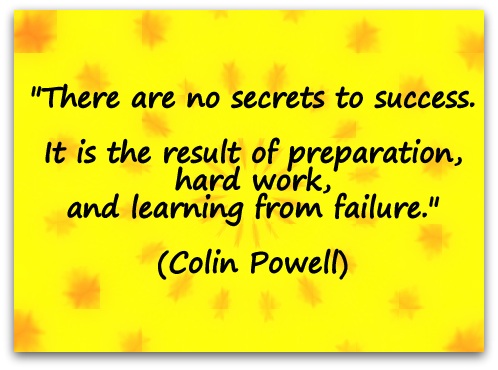As a coach – how do you prepare for a coaching session?

Back in 2010 I wrote a post all about preparing for a coaching session as a coach. It’s a post that I’ve noticed has continually got a steady stream of traffic so I thought it was time to revisit the question.
Looking back I can see that how I prepare for a coaching session has altered over time. I mention this not because I think any one method is “the way” but purely to introduce the idea that you are allowed to evolve your own style and routine over time. I’m a big believer in finding the way that best works for you and your clients.
When I originally wrote the post I had been reminded of a question the group was asked on a coaching course I had attended many years previously. The question was a version of “As a coach, how do you prepare for a coaching session?”
There were a number of individuals in the room with varying amounts of coaching experience in different contexts both face-to-face and via the phone. This resulted in a number of different answers as several coaches shared routines that they always performed.
I’ve grouped the answers under a number of different headings below and included some thoughts and examples about how these have altered for me personally over time.
• Activities to ensure the coach is physical comfortable throughout the session.
Sometimes this involved the physical set up of the room/phone area e.g. making sure that tissues and a drink are within easy reach. Although I’ve a cough/mute button on my phone set up so I don’t deafen my client if I feel a sneeze or cough coming unexpectedly during a phone call the tissues and water are a must for me.
Other things meant ensuring that basic needs such as needing to go to the toilet or hunger would not cause a distraction during the session.
For me this has been pretty consistent over my years coaching. It just seems easier and I build time in between sessions to ensure a comfort break can be taken if needed. Plus it’s time that can be really useful to have time if there’s something I need to follow up on immediately.
• Checks to ensure that the client is physically comfortable throughout the session
This normally applied to face-to-face coaching sessions. While tissues and refreshments were mentioned by some, the physical layout of the room was the thing most often checked. Thought and consideration appeared to be made to how seats were being arranged and the possibility for the need of a table etc.
Most of my coaching takes place via phone or Skype calls. This means I have little control over the room set up my client is using. I do include suggestions in my welcome pack about being comfortable, making it as easy as possible to focus and avoiding distractions.
I usually also ask at the start of each call “Is now still a good time to talk?” This is deliberate, firstly because if someone has been delayed and is stuck on a train etc it’s much easier to deal with that situation before the signal drops as they go through a tunnel etc. (It doesn’t happen often but sometimes the unexpected and unplanned for happens) Mainly however, it’s a question I find helps clients to transition from an already potentially hectic day to a time that’s just for them to focus and slow down.
• Checks that the coach had everything they expected to use.
Commonly this included being able to see a clock to monitor the time, paper & pen and a diary to schedule the next session. Specific “worksheets” or other books or equipment were also mentioned if a coach planned a specific activity or share a specific quote.
Over time I find I’ve personally needed less and less. Partly this is due to technology calendars, clocks, timers etc are now all available easily with a swipe of a finger on a phone etc. (I’ll return to mention phones later)
I still have a pen and paper to make notes but where when I was first starting I’d often have worksheets handy that’s changed. I may design a bespoke exercise in that moment to work with a specific client based upon the conversation so far but I can’t remember the last time I used a worksheet with a client. (Again this is just my style and I mention purely to emphasis that you are allowed to change how you work – so if you’re thinking you need to get it perfect immediately don’t put yourself under that pressure, allow yourself to experiment and evolve your own way)
• Time specifically set aside to review any previous sessions and any coaching preparation the client had already provided the coach with prior to the start of the session
Different coaches gave different reasons for what they reviewed. Some liked to have a reminder of what the client had committed to during the last session. Some coaches wanted a general reminder of the session to ensure continuity from where the last session finished.
Others were more focused on any preparation they had been sent because the way they worked concentrated upon where a client is in that moment – rather than where they were at the last session.
When I first started out I used to only feel prepared if I had lists of questions to ask connected to either the last session or any pre-session material I’d been sent. In reality I seldom actually asked any of those questions during the session. Often the client had already moved on and those were no longer relevant. Alternatively, I found that the questions I imagined asking were actually not relevant as soon as we started exploring a topic. I may have been making up what a client would answer to predict the next question but in reality the client had their own answers!
Now I will read the pre-session material I’m sent but where as in the past I saw it partly as a chance to help me prepare. Now I usually only see it as a way for a client to prepare. Just as I used to have imaginary coaching conversations with clients before a session I find clients pre-session material can trigger similar imaginary coaching conversations for themselves. So that by the time it comes to our actual session they’ve already potentially had a new insight and we can focus on something else instead. I’ll also quickly check on agreed upon actions in case that’s something that I need to highlight (accountability is something that some clients love to use)
• Something based around energy or ensuring that the coach was in the “right” state to coach.
The answers in that group training was often something personal. For some it involved doing something energetically, others chose to meditate or listen to a particular piece of music. Others had other rituals that they choose to perform.
Over the years I’ve had lots of different rituals. I’ve deliberately triggered energised states or deeply focused states. I’ve meditated or used various self-hypnosis techniques.
At the time of writing the original post I loved asking myself the question
“what can I do to ensure that I show up brilliantly?”
As one lovely coach commented in the first post, it’s a great question to encourage you to define what showing up brilliantly actually means for you. My current style is much more relaxed and trusting that there’s not as much I need to do.
Whilst I didn’t include this heading in the original post I’m going to add a new one:
• Anticipating and avoiding interruptions and distractions
I’ve already mentioned that I encourage clients to avoid distractions. There’s certain things I do to ensure the same applies at my end of the conversation. Switching phones to silent/aeroplane mode is one thing.
If you are working from home and share the house with other family members you’ll find your own way to make sure you are not disturbed. Personally I shut my office door and because that’s not always obvious from the stairs (it’s at the end of a corridor) I also have a lamp that I switch on that’s reflected in a mirror make it much more obvious that I’m not going to answer any bellowed questions no matter how loud they shout.
I also generally have to move a cat from my office before a call. This is a step I included very early after my cat at the time got annoyed I wasn’t paying her attention, walked across the phone keyboard and hung up on one of my very first practice clients! (Luckily the client was a cat owner themselves and found it very funny – I was mortified at the time!)
There is always going to be the potential for certain unexpected disruptions. If a fire alarm starts going off, for example, then you need to ensure your own safety. However, I suggest if you can plan to avoid them it’s easier. It’s also worth mentioning that for some clients avoidable disruptions are not acceptable.
The message I left that particular part of the training with was that it was important to create a pre-coaching routine. I’ve no idea if that was the intention of the trainer on that particular day or not but it was what I personally took away.
Although my routine has altered in length and content over time I still deliberately build certain aspects into my schedule to allow for a routine prior to a coaching session.
![]() Do you have anything specific you do before a coaching session?
Do you have anything specific you do before a coaching session?
Perhaps there’s something that has occurred to you whilst reading this post.
Feel free to share your answers and comments below.
About Jen Waller
 Jen Waller is on a mission to support, nurture and encourage coaching skills and talents from non-coach to coach and beyond.
Jen Waller is on a mission to support, nurture and encourage coaching skills and talents from non-coach to coach and beyond.
As an experienced coach and trainer Jen is happy to utilise all skills at her disposal to assist clients from getting out of their own way and making a difference in the world with their coaching. One of the aspects of her role Jen loves the most is seeing individuals find their voice, grow their confidence and take the next steps. This allows them to make a massive positive impact and difference with their coaching. (For more info about Jen’s coaching click here) Jen has owned and run Coaching Confidence, the coaching blog since 2010.
In her spare time Jen is a volunteer for the UK based charity The Cinnamon Trust. This charity supports elderly and terminally ill pet owners to provide care for their pets. As a volunteer, Jen regularly walks dogs for owners who physically often find that more challenging then they once did. As a pet owner herself, Jen finds it really rewarding to be able to assist an owner stay with an animal that has become part of the family. (Plus it’s a great additional motivator when working from home to get out and get some fresh air and exercise)
Jen also loves theatre and has been known to watch certain popular science fiction films and TV shows!





